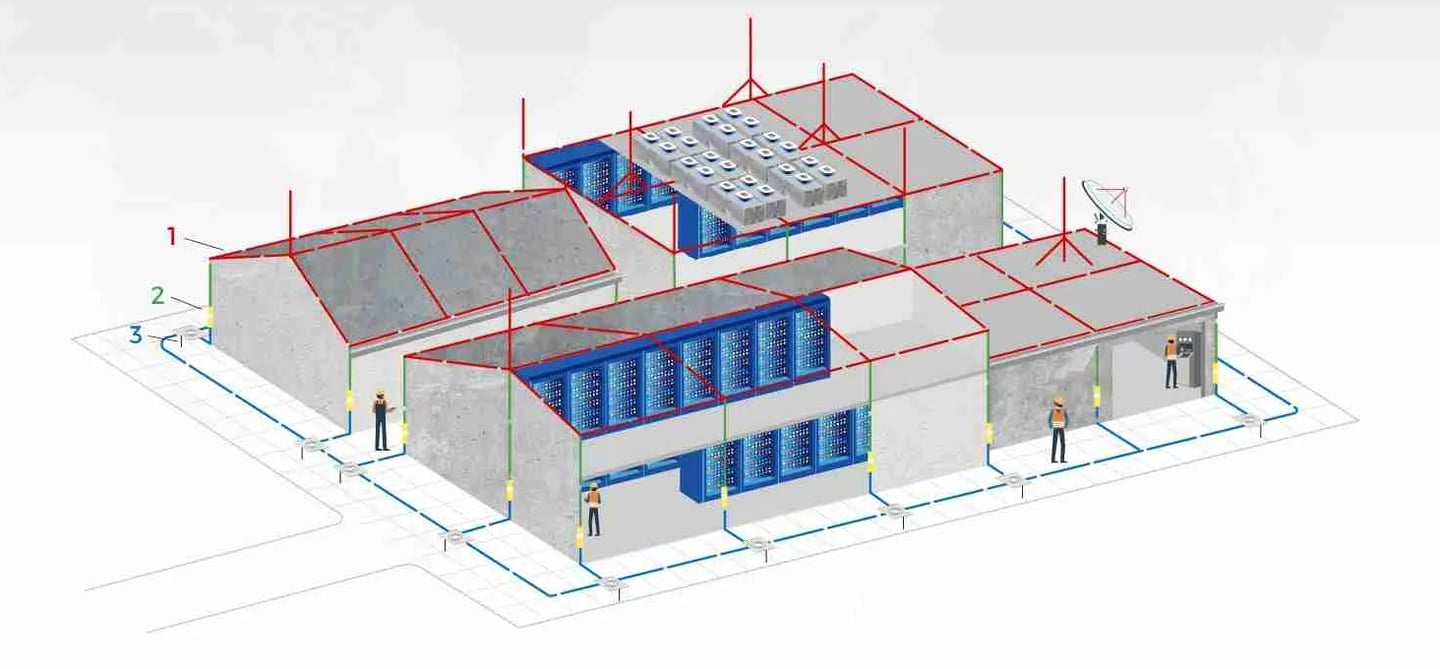Power Earthing Systems
The Direct Strike Earthing System plays a vital role in safely dissipating electrical currents into the ground, preventing equipment failure and operational downtime in the event of a lightning strike.
We work closely with clients to design, supply, install and commission earthing systems that comply with nationally and internationally recognised standards, including:
EN 62305 – EN 50522
Our specialist teams carry out every stage from pre‑installation surveys to commissioning ensuring the highest standards of safety, reliability and performance. With an uncompromising commitment to health and safety, we guarantee protection for your staff, the public and your assets at all times.
Common types of earthing arrangements include:
Copper‑bond earth electrodes
Copper lattice earth mats
Copper ring tapes
Soil enhancement agents
Deep driven bore holes
Substation earthing


OUR PROCESS
At Direct Strike, we follow a proven, step‑by‑step approach to ensure every lightning protection system is safe, reliable and built to the highest standards. Our expert consultants and engineers work closely with architects, contractors and project managers to deliver excellence at every stage.
Our process for the installation of an electrical earthing system works as follows:
Strike Risk Assessment
Design
Supply
Test & Commissioning
Maintenance










Components of an Earthing System
Every electrical earthing system relies on three core components working together to safely manage fault currents and protect your infrastructure. To ensure reliability and compliance, it is critical that these systems are designed and installed by certified engineers with the technical expertise, experience, and industry accreditations required.
By following internationally recognised standards, Direct Strike guarantees your earthing system is built to provide long-term protection for your building, equipment, and people.


1. Test Point
2. Inspection Chamber
3. Earth Rod Electrode
A bimetallic connector that separates the aluminium lightning protection system from the copper earthing system. It also allows for disconnection during testing to verify system performance.
4. Ring Conductor
Houses the earth electrode and earth bar. This is where the lightning protection system and earthing system are interconnected and can be safely isolated for inspection and maintenance.
A common Type A earthing arrangement that safely dissipates lightning currents into the ground through a 2.4m earth rod, ensuring controlled energy discharge.
A bare copper conductor buried around the building perimeter at a minimum depth of 600mm. It interlinks the down conductors via the inspection chambers to provide a continuous, reliable earth path.
System Advantages & Benefits
Earthing Systems provide a number of key benefits for complete building envelope protection against electrical earthing systems, including:








Complete Building Protection
Electrical Equipment Protection
Personal Protection
Fire Prevention
Let’s design the right protection system for you. Contact our experts today.
DIRECT STRIKE
Specialists in Lightning Protection & Earthing Systems.
QUICK LINKS
SERVICES
CONTACT US
Speak to our team of specialists today.
© 2025 Direct Strike. All rights reserved. | Privacy Policy | Cookies | Website by MCC MEDIA
Connect on LinkedIn